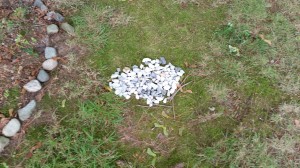I’m the kind of person who holds her emotions really close to her chest. I hate crying in front of people, even the ones I’m closest to, and have always, as far back as I can remember, felt this way. I don’t like openly showing many strong emotions often feel embarrassed when I do, and sometimes even feel embarrassed for other people when they are showing strong emotions (though they themselves probably aren’t feeling that way…they are simply reveling in whatever they are feeling).
It’s not that I don’t have strong emotions. In fact, it’s just the opposite; I have strong emotions, it’s just hard for me to show them. When I’m upset about something or hurt, it most often comes across as anger…because for some reason my brain thinks it’s okay to show anger if I have to show something.
Psychoanalysis aside (not really interested in analyzing myself, especially not here on a public website…yikes!), being this kind of person makes it hard for me to open up my emotional self in my writing. One of my goals this year was to push my writing to show deeper levels of emotions, and that included all forms of my writing: blogging, the journals I keep for the boys, my novels, everything.
I really stripped down and got real here on the blog with my post “How Does a Mother’s Love Grow?” back in February. I was going through a really tough time as a mother and shared some real and not necessarily flattering feelings. Frankly, that was a terrifying moment when I hit Publish on that post. But it got a lot of hits and so many wonderful comments. Though when I think about people reading that post, it kind of makes me nauseated.
My WIP is a really gritty novel, a thriller about a girl with a dark past (much of which she can’t remember) and who isn’t sure if she deserves a chance to remake herself. She isn’t even sure if that’s possible and wonders if she’s just an evil person at the core. Not that her feelings are my own per se, but the idea is to push and explore those very deep emotions and draw them out. Whatever they may be.
So I think I’ve begun to chip away at that goal. And I think it’s bringing my writing to a whole new level. Because it’s those deep emotions that resonate with readers, it’s what they connect to and remember from a story. Ultimately that’s the kind of stuff I want to write, even if it kind of makes me cringe a little on the inside. It also makes me glow on the inside, too. One of the many dichotomies of my life!
I guess the next step in this process of mining my emotions would be to allow myself to express them to a fuller extent. Not only would that aid in my writing, but it would probably be healthy for me and my relationships (not that any of that is bad, but those could always be better, right?).
So where have you pushed yourself and your writing this year and where are you taking those things in the next year?



 some research on William Gillette who designed and lived in the castle.
some research on William Gillette who designed and lived in the castle.

























